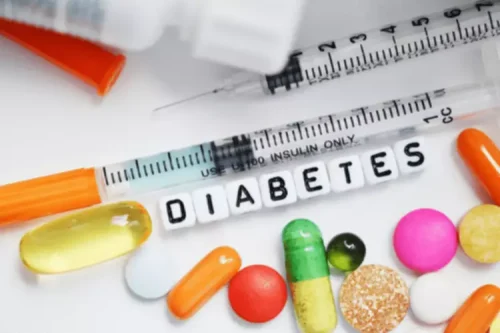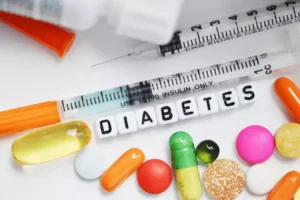
These complications can develop within a few hours or days and appear in the form of seizures, delirium tremens (DTs), and hallucinations, sometimes even leading to death. People attempting to quit may turn to drinking again to prevent withdrawal symptoms. Alcohol is the third-leading preventable cause of mortality in the United States, with approximately 95,000 people dying from alcohol-related causes each year. By gradually tapering off alcohol, you can lower your risk for alcohol-related accidents or death. Since I gravitated toward beer as my alcoholic beverage of choice, I found that I was often bloated in the morning. Plus, things are just generally—ahem—moving better through my system when I’m not drinking alcohol.
Find out more about our admissions process
- This is why you should taper off alcohol, or use a prescribed medication like benzodiazepines, during detox3.
- However, alcohol’s depressant effects are also responsible for many of the dangers of alcohol consumption, such as blackouts and alcohol overdose.
- Generally, light to moderate drinkers should plan to taper for a week or more.
- It can be tempting to throw yourself into an alternative behavior or substance use in order to distract from the difficulties of recovery.
On top of this, quitting immediately — or “cold turkey” as many users and professionals call it — can be dangerous. Withdrawal symptoms are generally uncomfortable to deal with, but they can be fatal. To avoid or reduce the impact of the withdrawal symptoms, people struggling with alcohol may choose to progressively taper off alcohol rather than quit abruptly. In these cases, talk to your doctor before cutting back on your drinking.
Practice Mindful Drinking
But, perhaps most importantly, understand that setbacks happen and that progress takes time or may look different than imagined. Alcohol withdrawal can cause many symptoms, some of which can be fatal. Start by estimating how much you drink on a daily basis—and be honest with yourself. It can help to make use of standard drink measurements, as mentioned above. Then come up with a reduction rate you think will be safe, and that you can stick to.

Challenges of Cutting Down Your Alcohol Intake

For instance, consider stocking your pantry with non-alcoholic beverages that you enjoy, such as flavored seltzers or herbal teas. This way, you can still have refreshing drinks that don’t involve alcohol, making it easier to resist cravings. It can be tempting to throw yourself into an alternative behavior or substance use in order to distract from the difficulties of recovery. If you notice an urge to use other substances, observe your feelings and consider talking to a counselor to help navigate the emotional impact of tapering your alcohol use.

It disrupts daily routines, causing withdrawal symptoms like anxiety, nausea, and tremors when not drinking. Over time, tolerance develops, requiring larger amounts to achieve the same effect, exacerbating dependence. Emotional challenges, such as guilt and denial, accompany addiction, making it difficult to seek help. Overcoming alcohol addiction involves acknowledging its impact, including physical dependency, emotional distress, and strained relationships. Recognizing the need for change how to taper off alcohol and taking structured steps substantially improves outcomes.
Finally, finding a therapist or a recovery coach can help you develop new coping mechanisms and move forward in your life. Some people are facing problems with their health or personal lives which require them to quit immediately. However, for many people with alcohol use disorder, tapering off alcohol is a far better experience than quitting abruptly.
- Slowly tapering your alcohol use can help you manage mild withdrawal symptoms and decrease the risk of AUD.
- But we are talking about tapering off, which means you will be drinking.
- If you’ve tried to reduce or stop drinking in the past and have experienced withdrawal symptoms, there are ways to safely detox from AUD.

Identifying triggers for alcohol use is a crucial step in managing cravings effectively. Triggers can be emotional, like stress or loneliness, or situational, such as social events where alcohol is present. Reflect on moments when you’ve wanted to drink; recognizing these patterns can empower you to avoid these situations or develop coping strategies.
What Helps with Weed Withdrawals?
Residential center that offers luxurious personalized executive treatment for those who seek the ultimate in treatment, privacy, and comfort. Your body has become used to, and dependent on, certain levels of alcohol. Alcohol depresses your nervous system2, so your body creates more receptors for neurotransmitters, or drug addiction treatment messengers, to stimulate the nervous system. We have taken the necessary precautions to minimize the risk of exposure and transmission of the Coronavirus to those in our treatment programs, allowing them to focus on their recovery.

Being exposed to either form of a trigger can result in unwanted relapse. It is important to note that prescription medication should not be used for a substitution taper unless it has been prescribed as part of a medical detox program. Quitting alcohol cold turkey https://ecosoberhouse.com/ is not recommended and can be dangerous. Alcohol is a central nervous system depressant that leads to an increase in brain neurotransmitters that slow down your brain’s functions, such as gamma-aminobutyric acid (GABA). When you drink heavily over a long period, your brain and body adapt to expect this.
